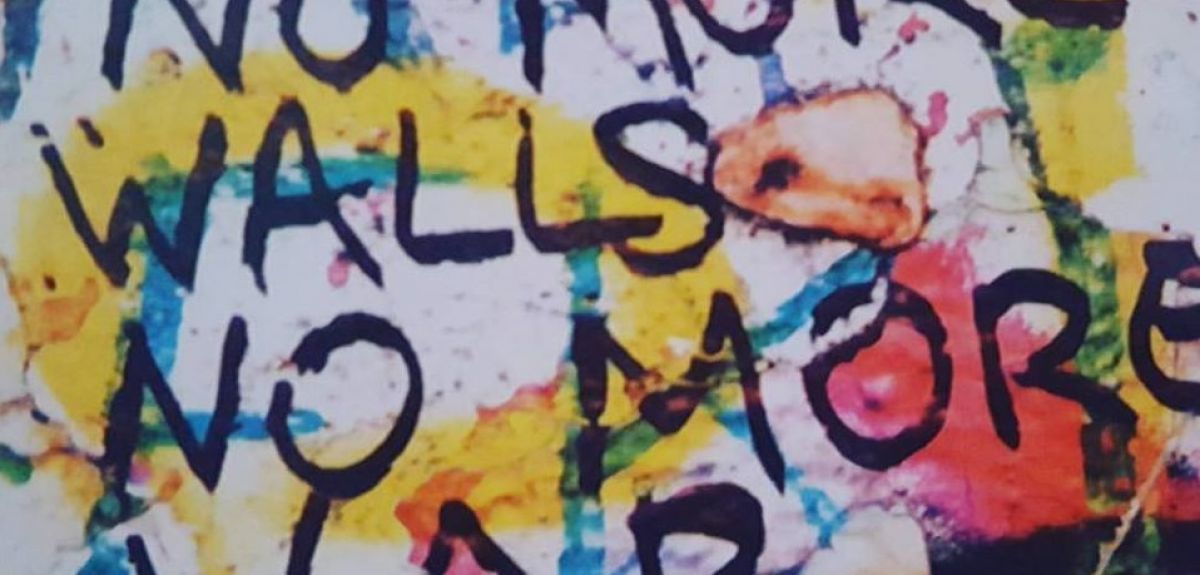
Photographed by Rachel Kowalski
The seminar series exploring violence
A new seminar series at Oxford explores different perspectives on violence.
It was set up by Rachel Kowalski at the beginning of this academic year, just a few weeks after beginning her doctorate in Irish history as a Wolfson Scholar.
‘I spoke to The Regius Professor of History, Lyndal Roper, about wanting to bring people from different disciplines together to talk about violence,’ she says. ‘She suggested that I start a reading group but I decided to take it a step further and launch a seminar series.
‘I enjoy the discursive element of a seminar, as opposed to that of a reading group or a lecture series. Each academic who featured spoke for an hour and then led 30 minutes of discussion, a format that proved to be successful.’
The purpose of the series is to study violence in its own right.
‘It is important to study 'violence' as a separate phenomenon to 'war', 'terrorism' or 'genocide', in order to understand why and how it happens,’ says Rachel. ‘The external factors and personal idiosyncrasies which drive and individual to commit violence can become lost in the greater narrative of a war or conflict.
'And the dynamics which shape the nature of any violent attack can only be surmised from understanding violence at a local or individual level. Why, for instance, are some attacks especially brutal, exceed what would be clinically required to take the life of an individual, and venture into what can only be perceived as cruelty?'
The series began with Dr Kieran Mitton from King's College London talking about ‘Irrational Actors in the Theatre of War’ focusing on Sierra Leone and the psychology behind violence. Many of Dr Mitton’s ideas about violence are found to be at the core of Rachel’s series as he argues that ‘normally when we delve into seemingly senseless acts of violence we can find a logic to them’.
The series has been varied in its content. It has covered Irish history, with Rachel’s own seminar on ‘Ethical Guerrilla Warfare, Terrorism, and the Provisional IRA’, Latin American topics, and other more general themes such as genocide.
A key feature of the series is that it is interdisciplinary. Many of the seminars were led by historians, but a number were conducted by political scientists and sociologists. A particular highlight for Rachel was managing to involve a literature specialist in the project.
'Matthew Voice, a Wolfson Scholar and PhD Candidate at Sheffield University, came to speak about ‘Contemporary attitudes towards marital violence in twentieth-century Ireland’ focusing on its depiction in memoirs,' she says.
'I wanted to take a step away from specific conflicts and look at violence generally. This meant I was able to look for speakers from different disciplines, as violence is relevant in many spheres.
'My only regret is that the series focuses solely on modern topics. I would have liked to have involved medievalists and classicists as violence is in no way a product of modernity.
'In the future I would like to collaborate with someone from another field to create an even broader series. This would hopefully allow me to advertise the series in a number of departments, which proved difficult this time round.'
It is rare for a DPhil candidate to launch a whole series of seminars that covers a multitude of disciplines and features a range of speakers from all over the country. With the attendees being a mixture of academics, postgraduates, undergraduates and members of the general public, Rachel’s audience has proven to be just as varied as her content.
Find out about the remaining four seminars here.
Rachel has previously been interviewed for our 'student focus' series.